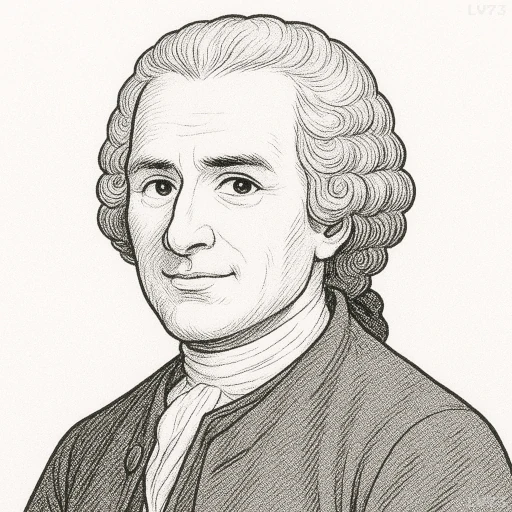“We do not know what is really good or bad fortune.”

- June 28, 1712 – July 2, 1778
- Born in Geneva
- Philosopher, political philosopher, writer, composer
table of contents
Quote
“We do not know what is really good or bad fortune.”
Explanation
In this quote, Jean-Jacques Rousseau reflects on the idea that human beings often cannot fully understand the true nature of fortune—whether it is good or bad. What might appear to be misfortune in the moment may later turn out to be a blessing, while what seems like good fortune may ultimately lead to negative outcomes. Rousseau suggests that our limited perspective prevents us from fully grasping the long-term consequences of events or circumstances in our lives. This view challenges the conventional understanding of fortune and encourages a sense of humility and acceptance in the face of life’s uncertainties.
Historically, Rousseau’s reflection on fortune ties into his broader philosophical beliefs about the complexity of human existence and the unpredictability of life. He often argued that the course of an individual’s life is shaped by forces beyond their control, and that what may seem like a stroke of luck or a terrible fate is often part of a larger and more unpredictable pattern. Rousseau was skeptical of the idea that people can truly understand the nature of their circumstances at any given moment, and he suggested that we should accept the unpredictability of life with equanimity, recognizing that time often reveals the deeper significance of events.
In modern times, Rousseau’s words resonate with our contemporary experience, where we are often preoccupied with instant gratification and short-term outcomes, whether in career, relationships, or personal success. The idea that we cannot always judge the true nature of our circumstances reminds us to embrace uncertainty and trust in the unfolding of events. For example, what might initially feel like a setback—such as a job loss or a breakup—could ultimately lead to personal growth, new opportunities, or a better life path. Rousseau’s quote encourages us to let go of the need for immediate certainty about whether our fortune is good or bad, and instead cultivate a deeper sense of trust in the unfolding of life.
Would you like to share your impressions or related stories about this quote in the comments section?




